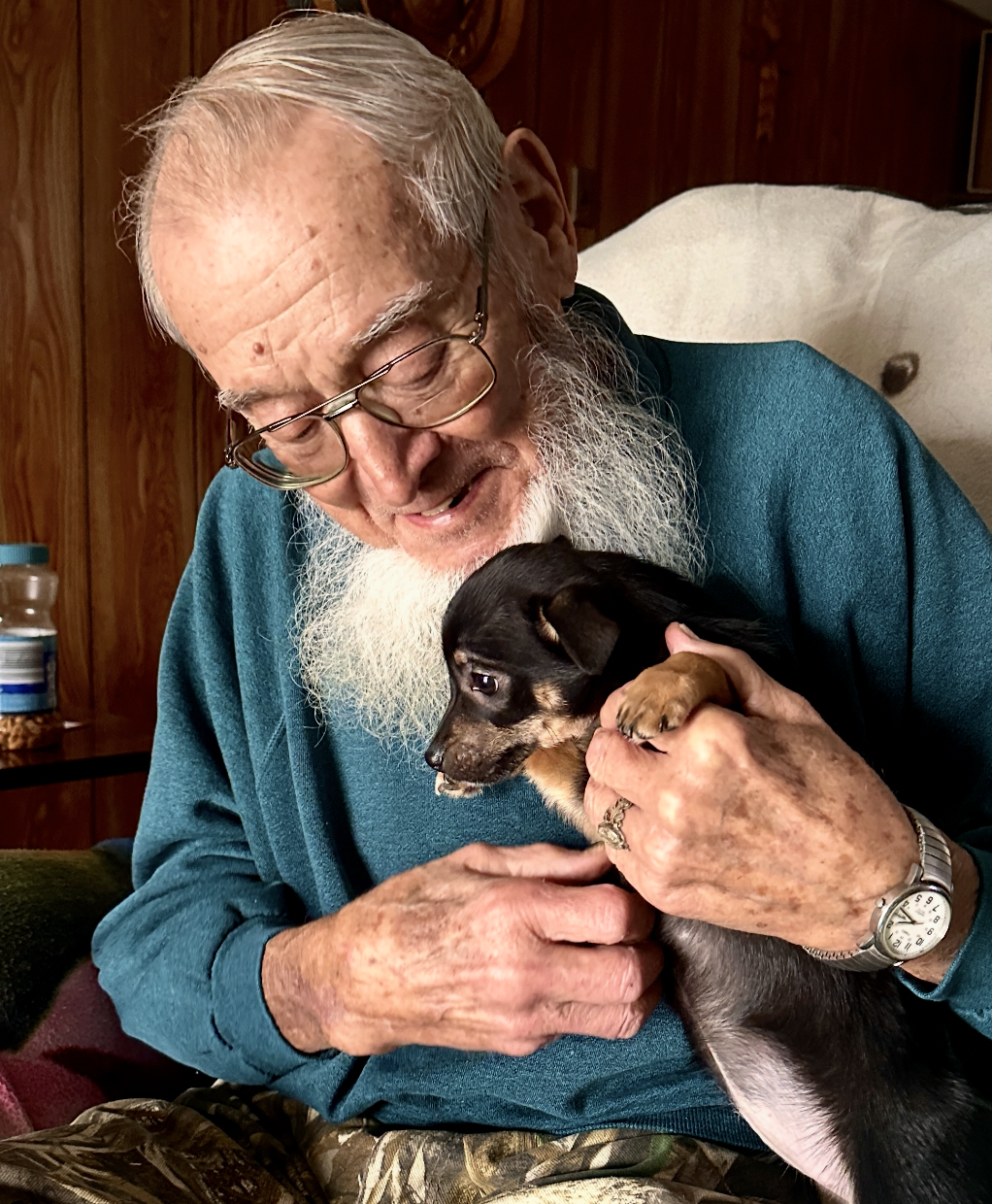As professional photographers, we're trained to chase perfection. We obsess over light, composition, lenses, and gear. We spend hours editing, curating, and delivering images that reflect our technical skills and artistic voice. But sometimes, the most important photographs we will ever take are not the ones shot with a $5,000 camera or under golden-hour skies — they are the ones captured in a fleeting, ordinary moment when all we have is our phone or a pocket camera.
This photograph of my 90-year-old grandfather holding a tiny puppy is one of those moments. It wasn’t taken with my best lens or under studio lighting. There were no presets, no reflectors, no assistants. Just a moment. Real, raw, and beautiful. His fragile hands, the quiet joy on his face, the gentleness with which he cradles that little life — this image is everything. It tells a story that no professional shoot could ever stage.
Snapshots like this remind us why we started taking photos in the first place. Before we knew the rule of thirds or how to shoot in RAW, we picked up a camera to remember — to preserve love, legacy, and life itself. We didn’t care about sharpness or dynamic range. We cared about feeling. About people. About holding on.
My grandfather won’t be here forever. The truth is, none of us will. And while I have portraits I’ve made that hang in galleries or grace the covers of magazines, it’s images like this one that I will cherish most when the people I love are no longer around to hold. This photo may never win an award or be printed in large format, but it holds a value that cannot be measured — it’s a time capsule of love.
As photographers, we can’t let the pursuit of perfection get in the way of presence. We must not let our desire for the “right” gear rob us of the right-now. There is nothing unprofessional about being human. If anything, these moments — raw, unplanned, genuine — are what make us better storytellers. They tether us to what matters most: connection.
So the next time you're with family and your pro gear is out of reach, remember that your heart and your eye are enough. Take the photo. Capture the laugh, the wrinkle, the touch, the light in someone’s eyes. Because years from now, no one will ask what camera you used. They’ll just be grateful you pressed the shutter at all.


